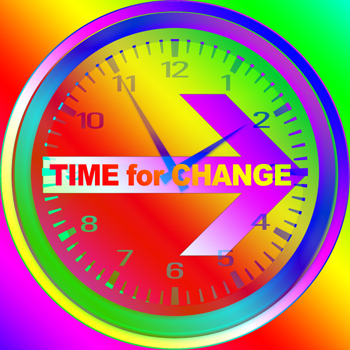Abuser – Why We Abuse
![]()
ABUSER – WHY WE ABUSE ~ ISSUE 194 ~ SEPTEMBER 29, 2015
By Diane Gold
 As an abuser, we get something out of the pain of others. What is so spectacular that we forfeit our love for others, our reverence for the rights of others, our sense of right and wrong, even our own dignity at the blink of an eye?
As an abuser, we get something out of the pain of others. What is so spectacular that we forfeit our love for others, our reverence for the rights of others, our sense of right and wrong, even our own dignity at the blink of an eye?
FEELING SMALL
Feeling small or powerless is usually at the root of being an abuser. We see ourselves as less valuable than others, our self-esteem is in the toilet (much like some people who are abused and allow the abuse), we see ourselves as weak. This feeling of having no power makes us miserable, angry, juvenile or, even, infantile. Although we may act as adults in many (or most) areas of our lives, we act like children when it comes to pursuing balance of our anger issues.
UPBRINGING
When baby boomers were young, they were shown the new entertainment – television. For part of my childhood, thanks to my uncle, I was able to watch superman and cartoons on a color television. I can recall one character taking a giant gavel and slamming it down on another character. Usually, the squooshed character would pop back up and be fine, with birds flying above the character’s head or symbols floating out of the head to represent pain from the strike in the head.
When my kids were coming up, they watched an environmental hero who was fighting pollution and outsmarting big development. Was there violence? Yes. It was justified by environmental pollution. But violence was there. Many of the parents with whom I hung out when my children were young did not allow their kids to see violence. Today, we see violence as entertainment all the time. Does this justify our being abusers? No!
ACTION STEPS
So, what can we do if we think or if we know were are an abuser?
1) HAVE COMPASSION
Feel for others, and think about how you would feel if someone were treating you the way you treat your object of anger. Be compassionate with yourself, too.
2) BE UNDERSTANDING
Understand that it is possible that you are not in control of your emotions and that you may need support.
3) GET EDUCATION THROUGH SUPPORT
Educate yourself as to how talking to others can help you control you as well as get you to see the truth.
4) BE FORGIVING AND PLAN AHEAD
Be forgiving of yourself for everything. Begin today to see yourself as kind. As with any habit, it’s crucial to plan ahead. Here’s an example strategy for when you get angry.
a) Immediately leave the premises that contain a person to whom you might direct your anger.
b) After this, immediately call someone who is not an enabler who won’t talk out of your own realization that you may be out of control. The National Domestic Violence Hotline at 800-799-7233 can suggest a certified intervention program for you or give you some resources that may help.
c) Notice your anger as you start to build the habit of walking away from the trigger environment. Forget this one until you actually have some success rate with walking away to protect everyone.
d) Feel hopeful that you are taking control of your circumstances.
5) BE REPETITIVE
a) If you are succeeding with the above strategy, keep going. Great.
b) If you are not, recall the hotline in 4) b) and tell someone you are in need of further help.
6) DO DAILY EVOLUTION
Every day, we have to take care of ourselves. This includes right food, good water, rest & relaxation, creativity & productivity and companionship. Here, I will mention activities that relax us: tai chi, dancing, chi kung, meditation come to mind. Doing one of these activities helps the body rejuvenate so that it has its best chance of doing well and helps us to lead a joyful, balanced life.
CONCLUSION
What makes us abusive can be varied: our childhood, how we think someone else is responsible (which is bogus because it’s on us), how someone triggered our anger. Whatever happened in the past, now is now. Right now. How we change our immediate behavior is the important thing.
When we begin to act in a new way, we are becoming familiar with how to do it. When we do it again, we get better at it. And we end up looking at ourselves in the mirror and saying,
 “I can do this.”
“I can do this.”
We all have many qualities within us. The good news is, with new actions, when it is time for change, we can establish new habits that are supportive of our morality and our peace.
![]()
If you wish to share your story, please hit reply in your email program to be contacted.
If you need habit help, go to
http://warriorsofweight.com/warriorsofweight-consulting.
![]()
FEEDBACK
We value your feedback very much.
Please leave a comment below.
Please LIKE us on the website and at
WarriorsOfWeight on Facebook.
You can also follow us on Twitter @warriorsoweight.
Thanks.
![]()
DIANE GOLD, PUBLISHER AND AUTHOR
Diane Gold, Founder of Warriors of Weight, Turning Habits Into Health, is a mentor in tai chi, kung fu and meditation, a music, fitness and stress expert, dedicated mom, studying peaceful conflict resolution, habit replacement and certified in plant-based nutrition.
She knows she has the ability to be an abuser within. We all do.
She says,
“When we feel angry, there are many things we can do other than abuse. Once we realize that being abusive shows weakness, it may not give us the feeling of control that it did. We may change our perception of the act of cruelty once we see that we look weak – since the act itself is about power.
“It is wrong to be an abuser because forcing others to bend to our will is wrong. Learning martial arts will teach us to balance the mind as it trains the body. That’s why this subject should be in every school curriculum.
“If we are the abuser, studying martial arts can level us out. We can use this study to stop our bullying. We can use the systematic approach taught to absorb the physical discipline as a training method for our anger and power struggles. All we have to do is begin. The control will come.
“Finally, let’s take overall good care of ourselves because we are so worth it.”
![]()







